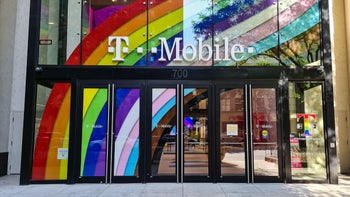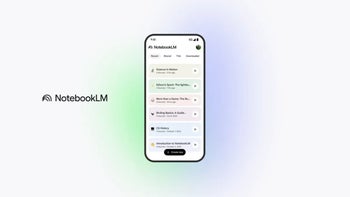Verizon's FreeBee Data is a sponsored data program that looks a lot like paid prioritization

If there's one thing we can rely on it's that the major telecom operators in the US are not big fans of net neutrality. In fact, some carriers are often vocal in their stance against the principles of a free unrestrainable Internet and often do their best to fight the movement by squeezing through loopholes and technical details.
It's in this context that Verizon, the largest carrier in the US by subscriber count, has just announced a new sponsored data program called FreeBee Data.
Verizon's FreeBee sponsored data program will come in two tiers. The first one, called FreeBee Data, will let content providers sponsor specific actions such as streaming a song, downloading an app, or watching a video. Whenever you follow a FreeBee link, which will be marked through a bee icon, the content on the other side of the link will not count towards your data cap. Verizon will get its money from the content provider using a pay-per-click model.
The second tier is called FreeBee Data 360 and is a pay-per-GB approach. Using the program, content providers will be able to offer free access to all or just a portion of their online content. In exchange, Verizon will tax the content provider on a per gigabyte basis, effectively allowing the content provider to pay for the bandwidth consumed by its users. In other words, what T-Mobile's Music Freedom and Binge On programs do for music and video streaming, respectively, Verizon's FreeBee Data 360 can do for all types of content.
At a first look, this may seem like a good idea for the average Verizon subscriber as it does translate into free bandwidth. The problem, however, is that sponsored data programs can create an uneven playing field among content providers. Some of the big players may have the budget to sponsor their content, but smaller ones might not dispose of such resources.
Verizon's FreeBee sponsored data program will come in two tiers. The first one, called FreeBee Data, will let content providers sponsor specific actions such as streaming a song, downloading an app, or watching a video. Whenever you follow a FreeBee link, which will be marked through a bee icon, the content on the other side of the link will not count towards your data cap. Verizon will get its money from the content provider using a pay-per-click model.
At the end of the day, content providers that do not offer free (in terms of carrier-imposed data caps) access to their shows/music/etc will find themselves at a disadvantage compared to those who can afford to pay Verizon for the bandwidth that their customers eat up.
The three core principles of net neutrality are the prohibition of blocking, throttling, and paid prioritization, and it sure does seem like Verizon's FreeBee Data program violates the latter. As such, it will be particularly interesting to learn what the FCC has to say about Verizon's new sponsored data business model. Back in, the FCC has allowed T-Mobile's Binge On to live on, but only under close scrutiny.
The three core principles of net neutrality are the prohibition of blocking, throttling, and paid prioritization, and it sure does seem like Verizon's FreeBee Data program violates the latter. As such, it will be particularly interesting to learn what the FCC has to say about Verizon's new sponsored data business model. Back in, the FCC has allowed T-Mobile's Binge On to live on, but only under close scrutiny.
Verizon says that it will debut the per-gigabyte FreeBee Data 360 program starting today while the per-click FreeBee Data 360 tier will open up for testing on January 25th. The Big Red carrier will initially test out its new sponsored program on about 1,000 customers across the US with a wide commercial launch is expected to follow later in the year.
source: Verizon
Follow us on Google News














Things that are NOT allowed:
To help keep our community safe and free from spam, we apply temporary limits to newly created accounts: